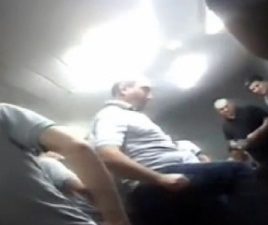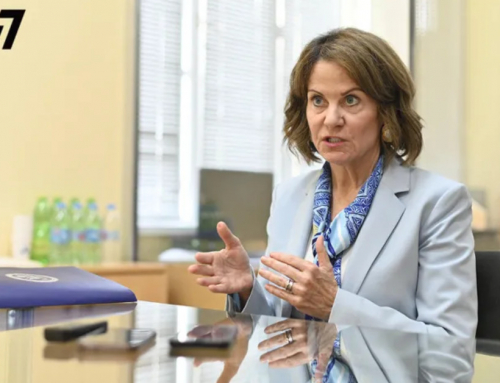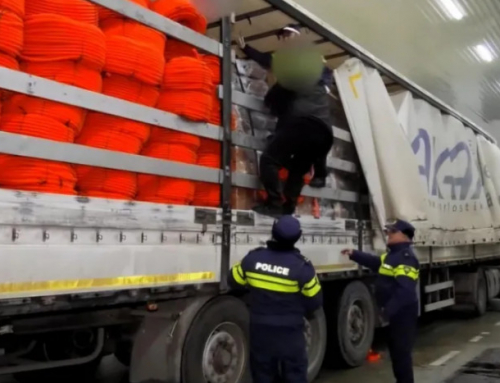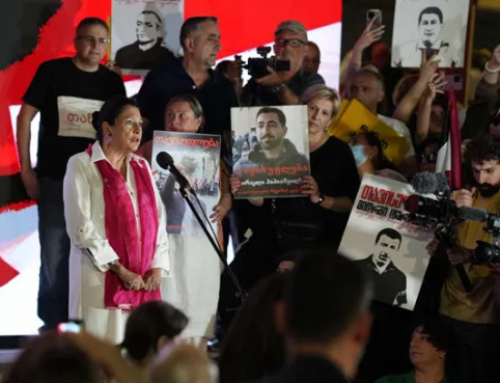
Prison torture in Georgia is one of the things Human Rights Watch reviews in its latest world report.
TBILISI, DFWatch–Human Rights Watch (HRW) criticizes Georgian authorities for not clarifying what criteria they used when cleaning up crimes committed by officials under the previous government of former President Mikheil Saakashvili.
“The authorities did not explain the criteria they used to determine which cases of past abuses to investigate and while investigating past abuses prosecutors questioned over 6000 persons, mostly UNM party activists,” a new report reads, and notes that this caused the National Movement to claim its activists were under political pressure.
After the change of power in October 2012, the new Georgian Dream government started investigating the crimes of the former government. 35 government officials have been charged in cases spanning abuse of office, embezzlement, false arrest and other charges.
Reviewing these cases in its new 2014 World Report, published on Tuesday, HRW writes that the detention of Vano Merabishvili, the former interior minister, ahead of the presidential election last year raised concern among some observers that it had political grounds. Merabishvili is still in detention facing several charges, along with former Defense Minister Bacho Akhalaia, who has been in detention for more than a year.
The passage about torture and prison conditions reads that in June, courts convicted 14 former prison officials for beating and torture shown in a handful of videos, which were published in September, 2012.
The publication of the footage showing verbal, physical and sexual abuse of prisoners was followed by weeks of demonstrations in the capital and other parts of Georgia.
Six of the charged were sentenced to from three to six years in jail, eight made plea bargain deals and were sentenced to from six months to five years.
“However, the prosecutor general fully released from criminal responsibility Vladimer Bedukadze, who provided information about the torture in which he was also involved,” the report reads. “Many local and international observers criticized the move.”
The report also recalls the mass amnesty introduced by the new parliament which saw the release of about 8 000 inmates.
“This alleviated severe overcrowding, a chronic problem in Georgian prisons.”
Despite the fact that in September, the government destroyed more than 180 hours (https://dfwatch.net/georgia-destroys-110-dvds-with-illegal-surveillance-videos-50120) of secret surveillance videos of private lives, according to the report, the Interior Ministry maintains surveillance equipment on the premises of telecommunication operators, giving it automatic access to all communications without judicial oversight.
The new report also reviews problems in connection with protecting LGBT rights and religious minorities.





Leave A Comment
You must be logged in to post a comment.